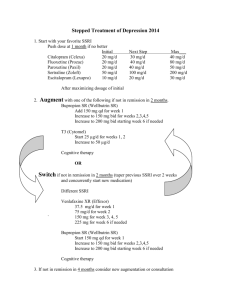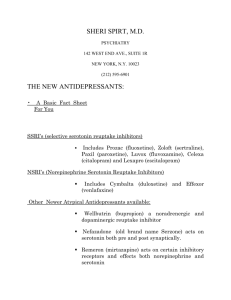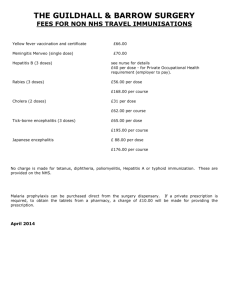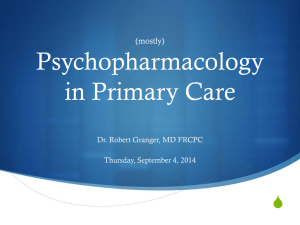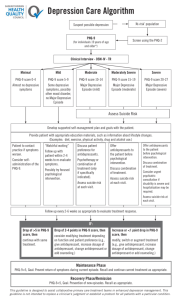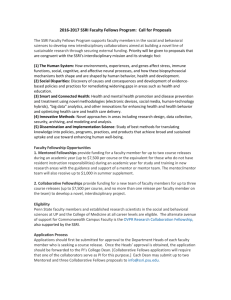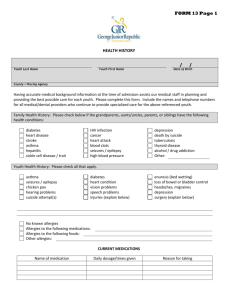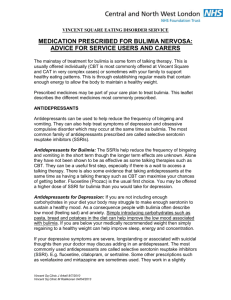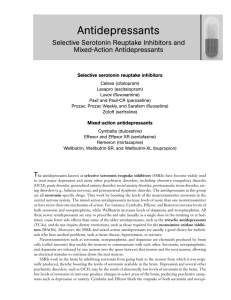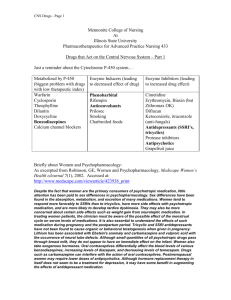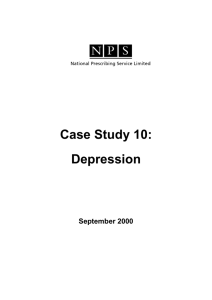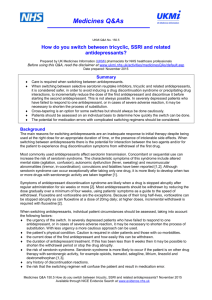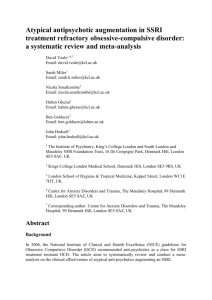Antidepressant Use
advertisement
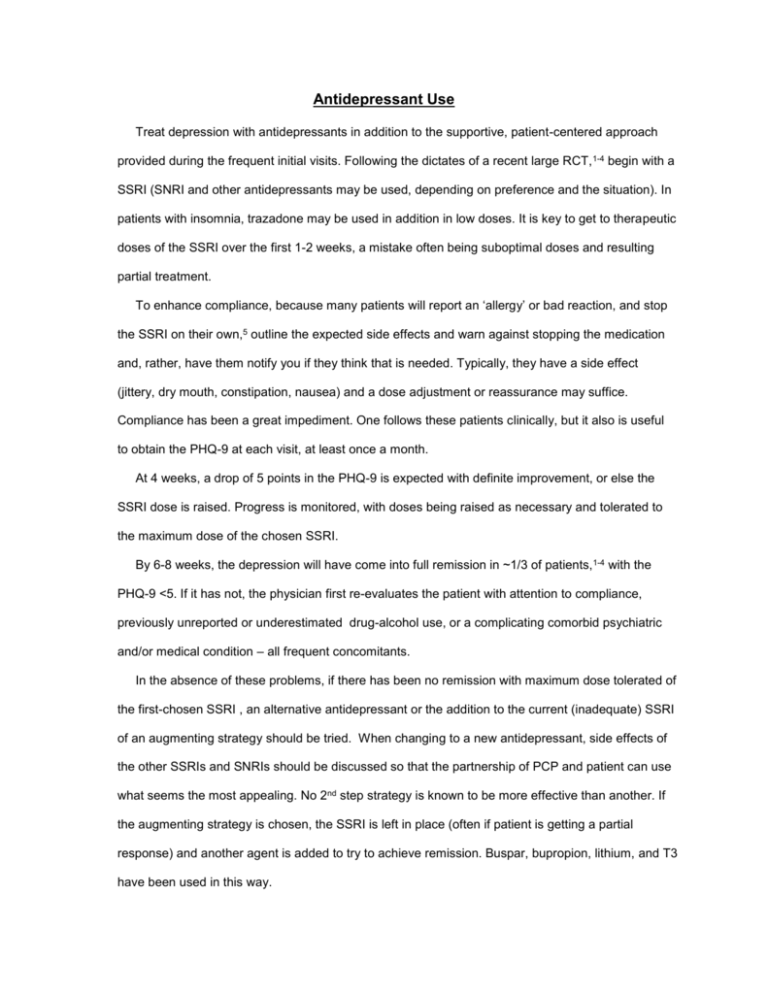
Antidepressant Use Treat depression with antidepressants in addition to the supportive, patient-centered approach provided during the frequent initial visits. Following the dictates of a recent large RCT, 1-4 begin with a SSRI (SNRI and other antidepressants may be used, depending on preference and the situation). In patients with insomnia, trazadone may be used in addition in low doses. It is key to get to therapeutic doses of the SSRI over the first 1-2 weeks, a mistake often being suboptimal doses and resulting partial treatment. To enhance compliance, because many patients will report an ‘allergy’ or bad reaction, and stop the SSRI on their own,5 outline the expected side effects and warn against stopping the medication and, rather, have them notify you if they think that is needed. Typically, they have a side effect (jittery, dry mouth, constipation, nausea) and a dose adjustment or reassurance may suffice. Compliance has been a great impediment. One follows these patients clinically, but it also is useful to obtain the PHQ-9 at each visit, at least once a month. At 4 weeks, a drop of 5 points in the PHQ-9 is expected with definite improvement, or else the SSRI dose is raised. Progress is monitored, with doses being raised as necessary and tolerated to the maximum dose of the chosen SSRI. By 6-8 weeks, the depression will have come into full remission in ~1/3 of patients, 1-4 with the PHQ-9 <5. If it has not, the physician first re-evaluates the patient with attention to compliance, previously unreported or underestimated drug-alcohol use, or a complicating comorbid psychiatric and/or medical condition – all frequent concomitants. In the absence of these problems, if there has been no remission with maximum dose tolerated of the first-chosen SSRI , an alternative antidepressant or the addition to the current (inadequate) SSRI of an augmenting strategy should be tried. When changing to a new antidepressant, side effects of the other SSRIs and SNRIs should be discussed so that the partnership of PCP and patient can use what seems the most appealing. No 2nd step strategy is known to be more effective than another. If the augmenting strategy is chosen, the SSRI is left in place (often if patient is getting a partial response) and another agent is added to try to achieve remission. Buspar, bupropion, lithium, and T3 have been used in this way. The patient is again monitored over a 6-8 week period while a new antidepressant or augmenting agent is tried. More remitters are achieved with additional drug trials. 1-4 The goal remains remission and another trial of switching to a new medication or adding a different augmenting agent are then tried, if the second trial fails. There are several caveats: a) the patient is constantly monitored for suicidal ideation, which can be precipitated after starting the antidepressants, especially in younger patients, but if there is no articulated plan, they can be managed in primary care; 6 b) when patients do not improve at all or worsen, or fail to remit despite a number of medication trials, referral to a mental health professional is recommended; c) patients are monitored for bipolar disorder episodes which sometimes can be precipitated by the above antidepressant regimen and which usually requires referral After ensuring full remission, the patient with a documented first episode of depression can be treated for 4-12 months, at which point many patients opt for a trial off the medication Patients with a history of multiple or recurrent episodes should consider remaining on the effective regimen indefinitely to help prevent future recurrences While the combination of antidepressants and psychotherapy has been shown to be synergistic, the non-specialist is not expected or trained to provide psychotherapy. Generally, though, we offer it initially to patients as a concomitant to antidepressants if they are willing to see a psychotherapist for co-management. Oftentimes, we also have observed that, as patients improve and begin talking less about physical symptoms and more about their personal issues, they are more open to referral to discuss, for example, job dissatisfaction, marital problems, and personal issues. It is essential, when considering referral to a psychiatry provider, to discuss this with the patient as well as with the mental health professional. We convey that the clinician will remain involved in their care, allaying fears of abandonment. The following are specific guidelines for referral: suicidal/homicidal thinking; psychosis; failure to respond or worsening; patient request, diagnostic lack of clarity.
